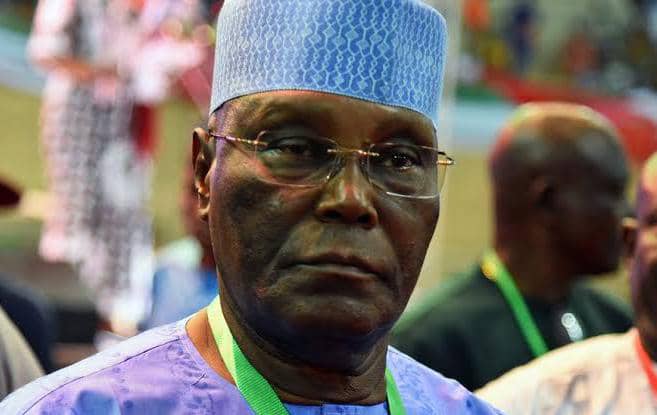Former Vice President Atiku Abubakar has urged transparency and accountability in the utilization of the $1.07 billion allocated to the health sector in the 2025 budget proposal.
He warned against the mismanagement of funds, referencing past incidents where public funds were allegedly swallowed by animals such as snakes, termites, and monkeys.
In a statement he personally signed, Atiku criticized the lack of thorough investigations into these bizarre claims and called on the government to ensure proper oversight of health sector expenditures.
“Against the backdrop of dwindling resources that have been exacerbated by the withdrawal of support in certain areas of our healthcare services, it is important that every kobo budgeted for the health sector has to be maximally utilised.
“To this end, the Federal Government has to be deliberate about putting mechanisms in place for public audit and accountability in its $1.07 billion budgetary appropriation in the health sector,” he stated.
Atiku also questioned the government’s failure to provide comprehensive details on how the $1.07 billion would be utilized in the primary health sector.
“We have read that the Federal Government has a plan to expend a whopping $1.07 billion in the primary health sector. This amount is in addition to the N2.48 trillion, which had earlier been proposed for the sector in the initial draft of the budget.
“This development gets even more troubling when the government equally announced that the $1.07 billion it is adding to the health sector at the sub-national level was mainly sourced through foreign loans and a fraction of it being provided through an international donor agency,” Atiku added.
The former vice president further criticized the administration for failing to commit to physical infrastructure projects in the health sector, raising concerns about possible misappropriation.
“Undoubtedly, the Tinubu administration has failed woefully in the health sector because of the poor funding of the sector. The major diseases in the primary health sector remain malaria, tuberculosis and HIV/AIDS.
“If Tinubu’s administration meant well in its claim to prioritise the health of Nigerians, his government should explain how it plans to spend this intervention fund in addressing these diseases in the primary health sector.”
Meanwhile, Civil Society Organisations (CSOs) under the Initiative for Leadership and Economic Watch in Nigeria have expressed their willingness to collaborate with the Economic and Financial Crimes Commission (EFCC) in monitoring the budget at both national and sub-national levels.
During a courtesy visit to the EFCC Chairman, Mr. Ola Olukoyede, in Abuja, representatives of the CSOs emphasized their commitment to ensuring that budgeted funds are properly utilized.
Speaking on behalf of the CSOs, Splendor Agbonkpolor highlighted their focus on budget implementation and transparency.
“The budget is our major concern. Our mandate is to monitor budget implementation; to assess budget effectiveness, identify budget gaps, advocate for reforms, promote transparency, provide evidence-based reports, collaborate with stakeholders, and support capacity building,” he said.
Agbonkpolor further explained the need for collaboration with the EFCC, stating, “The fight against corruption is not a one-man show. It is not a one-agency business, not a sole business of the EFCC”.
“The EFCC needs Nigerians to assist it in terms of reportage and information. The committee believes that corruption starts with procurement. If corruption is tackled from the point of procurement down to the point of implementation, at the end of the day, the money that would be stolen from the budget would be minimised.
“In our work, over time, we discovered that despite the huge money received by contractors for projects, whenever we get to the site, nothing would be there. If we go on-site and we see that a project that was supposed to be on the ground is not on the ground, we will come to the EFCC and say, ‘Look at this project, look at the amount of money that has been paid, but there is nothing on the ground.’ So, it makes the work easier for the EFCC to just go there and investigate.”
Olukoyede welcomed the partnership, emphasizing the importance of collective action in fighting corruption.
“We can only achieve that by collaboration. I have been saying it and I will continue to say it that fighting corruption is not the work of law enforcement or anti-corruption agencies alone, and that is why I am so much in love with your initiative. I can guarantee you all our support. When I see civil society with us, it gives me confidence that we are succeeding.
“We are all victims of this crime we are talking about. So, we are ready to work with you. Budget implementation and monitoring are very key. We will ensure that our collaboration with you is strong.”

















